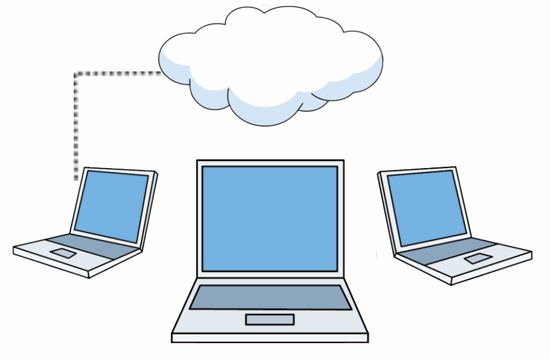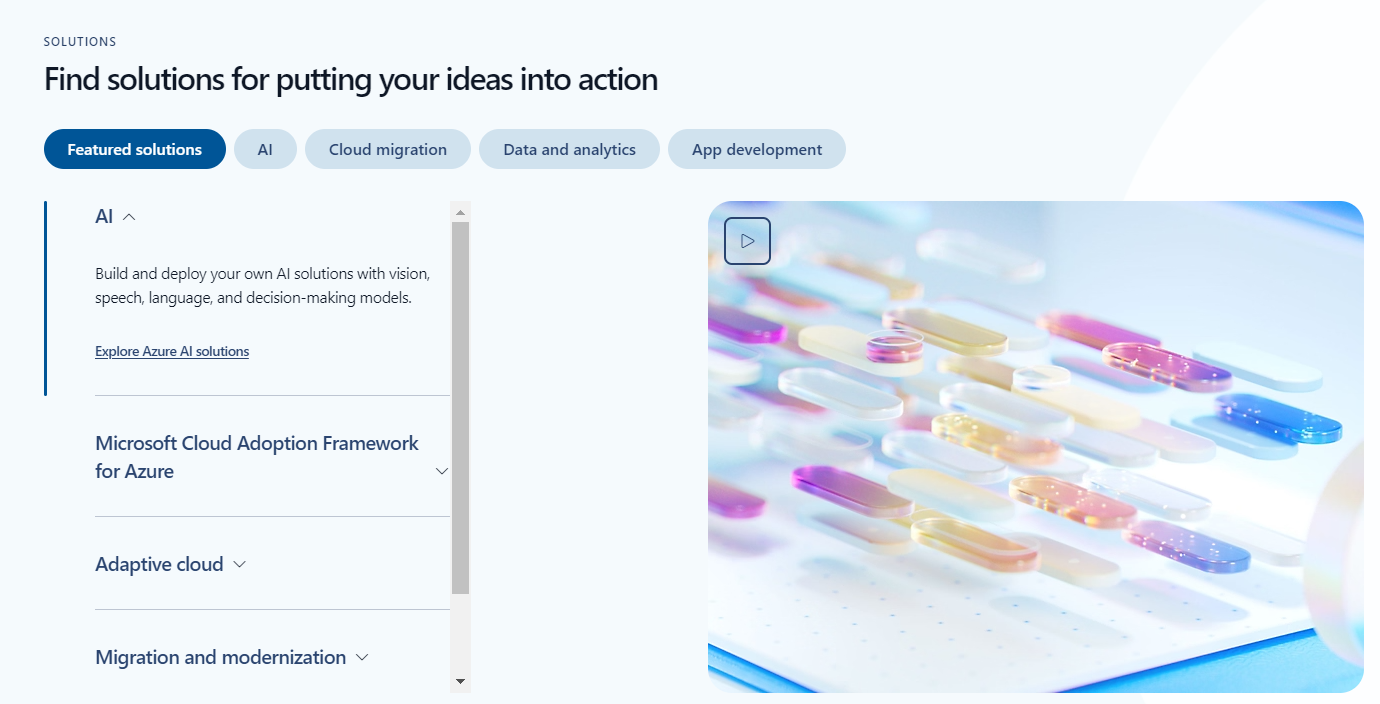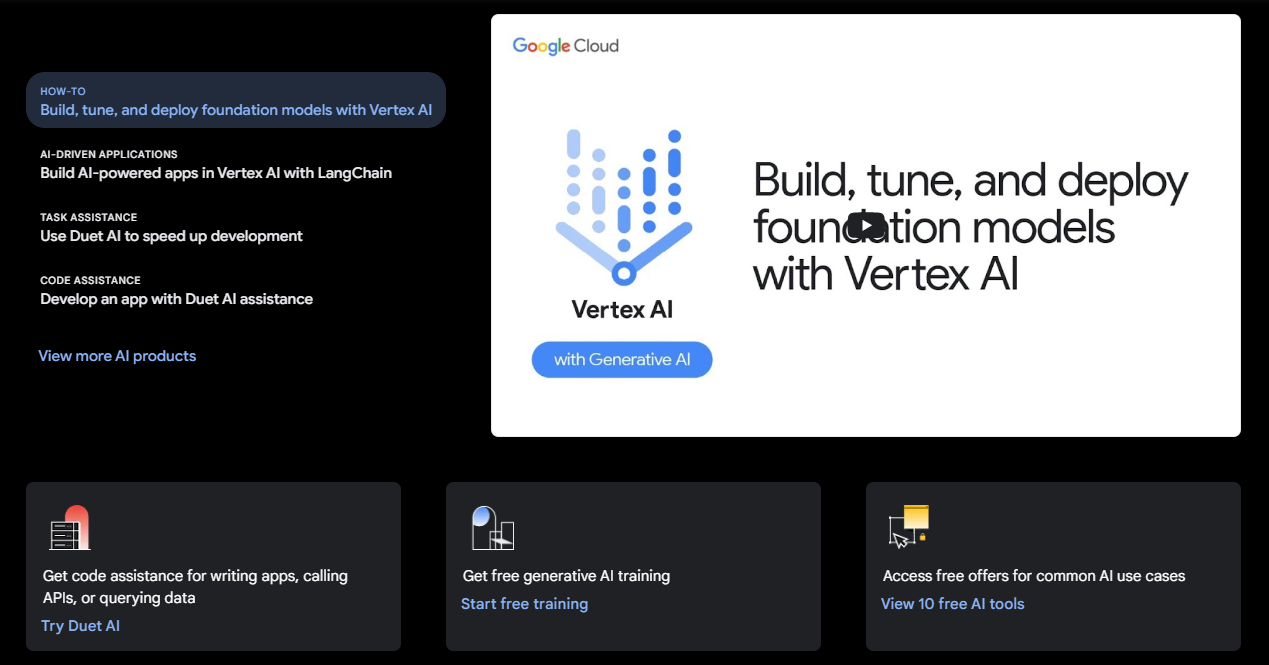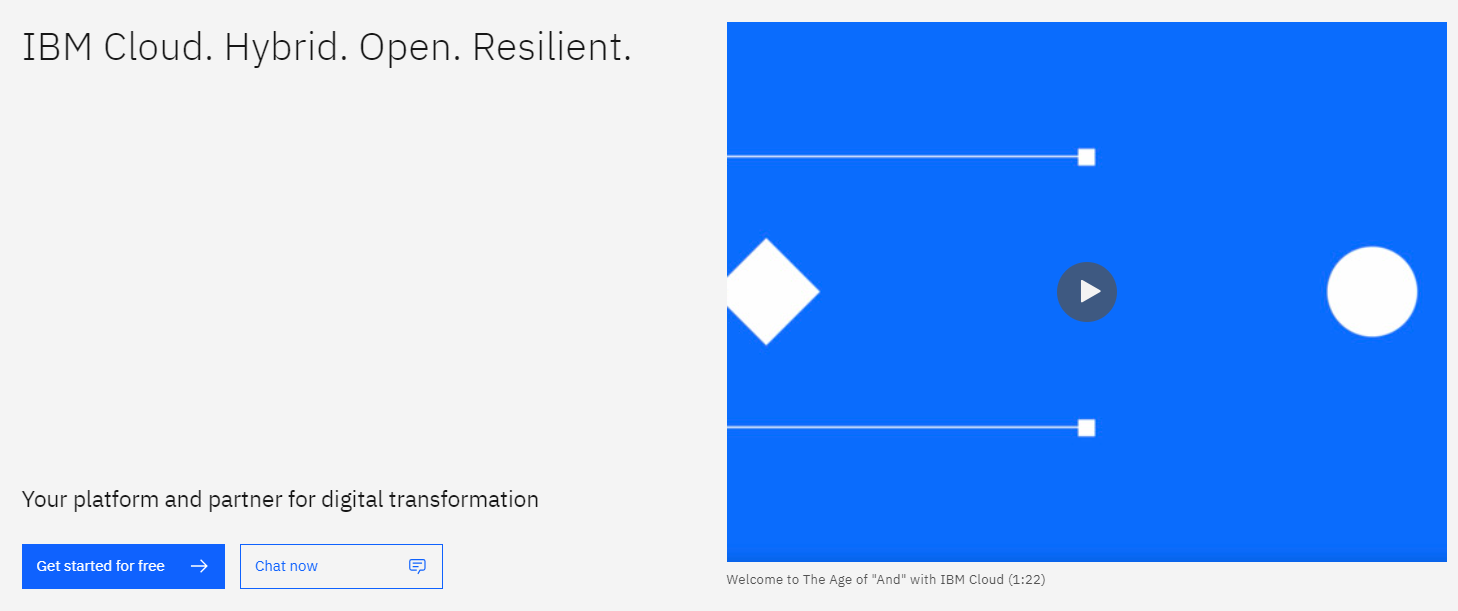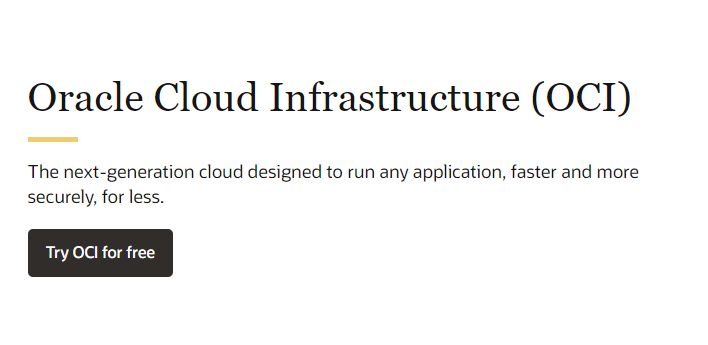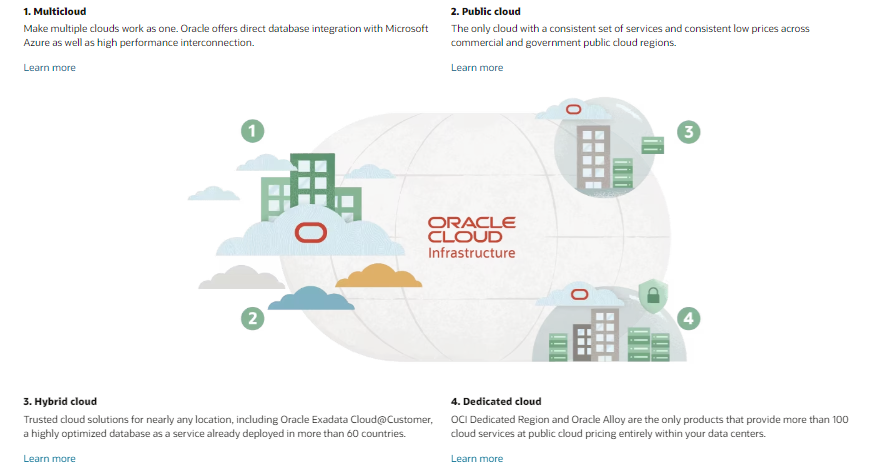Contents
Are you looking for a different cloud service that’s not Amazon Web Services? There are other great options out there! ☁️
These 4 top alternatives to AWS offer cool features, good prices, and special services that fit what you need. 💥
They are easy to use, reliable, and can grow with you. Let’s explore these choices and see how they can help you do more online, in simple and smart ways. 🔎
Leading Alternatives of AWS for Scalable Cloud Solutions
| Feature | Microsoft Azure | Google Cloud Platform | IBM Cloud | Oracle Cloud Infrastructure |
|---|---|---|---|---|
| Integration with Products | Seamless with Microsoft software | Tight with Google services | Cognitive applications with Watson | Focused on database management |
| Hybrid/Multicloud Support | Strong (on-site and cloud mix) | Multicloud and Anthos | Cognitive Applications with Watson | Available, but less emphasized |
| AI and Data Analytics | AI tools and frameworks | Advanced in AI and BigQuery | Watson AI, blockchain services | Not as strong as others |
| Security and Compliance | High (industry-specific compliance) | High (with private global network) | High (focus on data protection) | Very high (advanced security features) |
| Unique Offerings | Hybrid cloud approach | Live migration, sustained use discounts | Hybrid cloud, HPC options | Autonomous databases, high-performance |
| Pricing and Discounts | Pay-as-you-go, reserved instances | Sustained use discounts, no upfront | Flexible, subscription-based | Universal credits, flexible |
| User and Community Support | Extensive community and marketplace | Growing, with innovative solutions | Targeted, but less than AWS | Smaller community, focused support |
| Global Infrastructure | Broad, but less than AWS | Extensive, with high-speed network | Wide, focused on enterprise needs | Expanding, with strong database services |
⏩ Microsoft Azure
Microsoft Azure is a cloud service from Microsoft that gives you everything you need to run your programs and store your data online.
It’s like having a super powerful computer and hard drive on the internet that you can use without having to buy or maintain it yourself.
What makes Azure special compared to AWS, another popular cloud service, is how well it works with other Microsoft software.
If you’re already using things like Windows or Office, Azure fits right in, making everything smoother and easier to manage.
Plus, Azure is great for businesses that want to keep some of their computer stuff in their own office but also use the cloud.
This mix-and-match approach is something Azure does really well, which can be a big plus for lots of companies.
📌 4 Unique Features
📍 Works Great with Microsoft Stuff: If you use Microsoft software like Office or Windows, Azure fits in perfectly. It makes it super easy to move your work to the cloud if you’re already using Microsoft products.
📍 Mix of On-Site and Cloud: Azure is awesome for businesses that want to keep some of their computer systems in their own office but also use the cloud. It makes it easy to connect everything together.
📍 AI and Learning Tools: It has a bunch of ready-to-use tools for artificial intelligence (AI) that make it easy to add smart features to your apps, even if you’re not an expert.
📍 Safety and Rules: Azure takes security and following the rules very seriously, especially for businesses that have to be really careful about protecting their data, like hospitals or banks. It’s built to keep your data safe and meet strict guidelines.
🪄 2 Improvement Points
📍 Marketplace Offerings and Community Support: AWS has a larger marketplace and a more extensive community of users and developers.
This extensive ecosystem means AWS users often have access to a wider range of third-party tools, integrations, and community-driven support resources.
This can make AWS more appealing to businesses looking for specific solutions or those who rely on community support for development and troubleshooting.
📍 Global Infrastructure: AWS has a broader global infrastructure, with more data centers spread across different regions compared to Azure.
This extensive network can provide AWS users with lower latency, better fault tolerance, and a more localized presence, which is crucial for businesses requiring data to be stored or processed in specific geographic locations to comply with data sovereignty laws or to ensure faster access for users in remote areas.
Must Read: pCloud Review – Is It Worth & Secure Cloud Storage Platform?
⏩ Google Cloud Platform (GCP)
Google Cloud Platform (GCP) is great for working with data and artificial intelligence (AI), thanks to Google’s expertise in these areas.
It works really well with other Google services like Gmail and Google Docs, making it a good choice if you’re already using these tools. GCP is often cheaper than AWS, especially if you use it a lot, because it offers discounts for longer use.
Plus, it’s known for being super fast and reliable all over the world, which is great if you need to access your work quickly from anywhere.
This makes GCP a top pick for businesses focused on data analysis, AI projects, or those looking to save money on cloud services.
📌 4 Unique Features
📍 Global Fiber Network: GCP leverages Google’s private global fiber network, providing users with exceptional data transfer speeds and reduced latency.
This network infrastructure is one of the largest and most advanced in the world, allowing for faster and more reliable access to cloud resources, which is a distinct advantage for applications requiring high-performance computing and global data accessibility.
📍 Live Migration of Virtual Machines: Unlike AWS, GCP offers live migration of Virtual Machines (VMs). This means GCP can move your VMs between host machines without downtime during maintenance or in response to hardware failures.
This feature enhances the reliability and uptime of services hosted on GCP, ensuring minimal disruption to operations and user experience.
📍 Sustained Use Discounts: GCP provides automatic sustained use discounts, rewarding users for continuous use of their computing resources.
These discounts are applied without any upfront commitment, unlike AWS’s reserved instance model, which requires a commitment to use resources for a certain period. This pricing model can lead to significant cost savings for long-term, consistent workloads.
📍 BigQuery: GCP’s BigQuery, a fully managed, serverless data warehouse, allows for SQL queries against large datasets with impressive speed and efficiency.
While AWS offers similar services, BigQuery stands out for its ease of use, scalability, and performance when handling massive datasets.
It’s particularly favored for real-time analytics and has a strong integration ecosystem, making it ideal for data-driven decision-making.
🪄 2 Improvement Points
📍 More Big Companies Using It: Right now, not as many big companies use GCP compared to AWS. AWS has been around longer and has more experience working with large businesses.
This means AWS has a bigger community, more stories of how companies use it, and better support for big projects. GCP is trying to catch up by getting more businesses to use its services.
📍 More Services and Options: AWS has more different types of services and options than GCP. This means AWS can be used for a lot more different kinds of projects, like websites, apps, storing data, and much more.
GCP is really good at certain things like data analysis and machine learning but is still adding more services to match everything AWS offers.
Also Read: CloudWays Review: Is This Cloud Management Platform Worthy?
⏩ IBM Cloud
IBM Cloud is different from AWS because it’s really good at mixing cloud services with a company’s own computer systems.
This is great for businesses that need to keep some of their data or apps on their own computers for safety or other reasons but also want to use cloud services.
IBM Cloud is also special because it has powerful tools for artificial intelligence (AI) through something called Watson.
This can help businesses make smart decisions by analyzing data. Plus, IBM Cloud offers special services for keeping data secure and private, which is super important for companies in areas like banking, health care, and government.
While AWS offers more services and covers more areas, IBM Cloud is a top choice for businesses that need these specific features.
📌 4 Unique Features
📍 Deep Integration with IBM Watson for AI: IBM Cloud is uniquely integrated with Watson, IBM’s AI platform that offers advanced data analysis, natural language processing, and machine learning capabilities.
This integration allows businesses to easily implement complex AI solutions, leveraging Watson’s powerful cognitive computing technologies for insights and automation.
📍 Strong Emphasis on Hybrid Cloud and Multicloud Management: IBM Cloud excels in hybrid cloud environments, providing tools and services that allow businesses to seamlessly integrate their public cloud, private cloud, and on-premises data centers.
Its multicloud management capabilities are designed to simplify the deployment, management, and operation of applications across various cloud environments, including those of other cloud providers.
📍 Blockchain as a Service: IBM Cloud offers robust blockchain services, making it easier for businesses to develop and deploy secure blockchain applications.
This is particularly appealing for industries that require immutable records for transactions, such as finance, supply chain, and healthcare.
📍 High-Performance Computing (HPC) Options: IBM Cloud provides advanced high-performance computing solutions, supporting complex computations and big data analytics.
This is beneficial for research institutions, engineering, and financial services that require extensive computational power to run simulations, models, and analytics.
🪄 2 Improvement Points
📍 Easier to Use: Some people find IBM Cloud a bit tricky to figure out, especially when they first start using it. The way things are set up and how you find what you need can be confusing.
Making the whole system easier to use and more straightforward would help new users get started more quickly and make things smoother for everyone.
📍 More Options: AWS has a lot of different services and tools that you can use for all sorts of projects, from building websites to storing data or running complex computer programs.
IBM Cloud has some great tools too, especially for things like AI and secure data storage, but it doesn’t offer as many options as AWS.
Adding more services and features would make IBM Cloud more appealing to people who want to do a wide range of projects all in one place.
⏩ Oracle Cloud Infrastructure (OCI)
Oracle Cloud Infrastructure (OCI) is really good at managing databases and making sure they run super fast, thanks to Oracle’s long experience with databases.
OCI has special databases that can take care of themselves for the most part, which means less work for people managing them. It’s also built to handle really demanding apps very well, making it great for businesses that need a lot of computing power.
If a company uses Oracle’s databases a lot or needs a powerful system for their apps, OCI could be a better choice than AWS because it’s specifically designed to be great at these things.
📌 4 Unique Features
📍 Self-Managing Databases: OCI’s databases can take care of themselves, doing tasks like backups and updates without needing people to do them manually. This makes managing databases easier and saves time.
📍 Super Fast Computing: OCI has really fast computers that are great for handling big tasks like scientific simulations or financial analysis.
These computers can handle a lot of work at once, making them perfect for businesses that need a lot of computing power.
📍 Strong Security: OCI has built-in security features to keep data safe, like encryption and controls for who can access what.
This makes it a good choice for businesses that need to keep their data secure, like banks or hospitals.
📍 Flexible Pricing: OCI offers a pricing system called Universal Credits, where you buy credits upfront and can use them for different services. This makes it easier to manage costs and budget for using the cloud.
🪄 2 Improvement Points
Adding More Features: Right now, OCI is fantastic for databases and big tasks, but it doesn’t have as many tools as AWS or Google Cloud.
It would be great if OCI added more options for running apps easily, analyzing data, and using machine learning to make smarter apps.
Growing Its Community: OCI’s community is smaller than AWS’s. It would help if OCI worked on building a bigger community by hosting events, offering more learning resources, and partnering with more companies. This way, users get more support and have more tools to work with.
Also Read: Clouding Review: Is This Cloud Platform Worth it?
🔥 Bottom Line
In conclusion, the four best alternatives to AWS offer unique strengths and advantages for businesses and developers seeking cloud solutions.
Microsoft Azure stands out with its seamless integration with Microsoft products and strong hybrid cloud capabilities. Google Cloud Platform (GCP) excels in data analytics and AI, leveraging Google’s expertise in these areas. IBM Cloud distinguishes itself with its focus on hybrid cloud solutions and advanced AI capabilities through Watson.
Oracle Cloud Infrastructure (OCI) offers specialized features such as autonomous databases and high-performance computing, making it a compelling choice for database-centric workloads. Each alternative brings its own set of features, pricing models, and support options, allowing organizations to find the best fit for their specific needs and requirements in the ever-expanding landscape of cloud computing.

